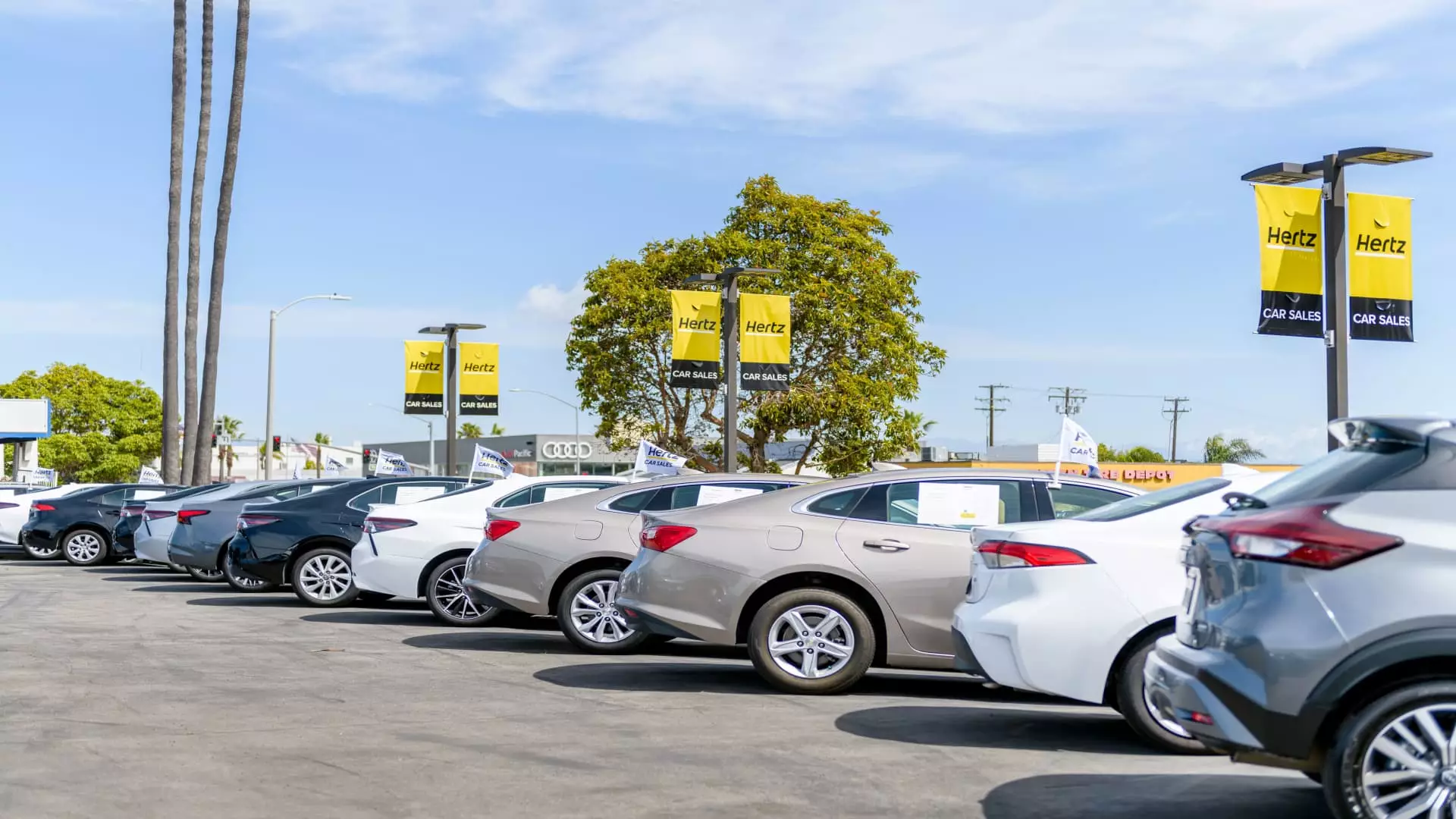Hertz’s recent pivot toward online vehicle sales signals a decisive shift in the automotive landscape—one that challenges the long-held reliance on physical dealerships. By partnering with Amazon Autos, Hertz aims to blend the convenience of e-commerce with its established auto sales presence. This move underscores a fundamental belief that the future of automotive retail lies in digital transformation, a notion that aligns with the broader trend of consumers demanding seamless, online experiences. However, this approach invites scrutiny: Can an industry historically rooted in personal interactions and tactile inspections truly thrive in a virtual space?
Hertz’s strategy reflects a desire to diversify revenue streams beyond traditional car rentals, which have been deeply affected by global crises like the COVID-19 pandemic. The digital shift is a necessary risk, but it’s also a gamble that could either catapult Hertz into a new era of profitability or expose its vulnerability to the departure from the tangible feel of purchasing a car—an experience many consumers still value. This initiative might represent a commendable attempt at innovation, but it also runs the peril of alienating customers who prefer face-to-face interactions and test drives over virtual inventories.
Capitalizing on a Hybrid Market: Convenience Meets Trust
The collaboration with Amazon Autos signals Hertz’s confidence in a hybrid sales model that leverages the vast reach and trust of a global e-commerce giant. Customers within a 75-mile radius of select cities can now browse, select, and technically finalize a purchase without visiting a dealership. The attractive aspect here is the seamless integration of online browsing with real-world pickup—a convenience that appeals especially to today’s time-conscious consumers.
Yet, this convenience also raises questions about the authenticity of the buying experience. Is browsing online sufficient for making a significant financial commitment like purchasing a car? While Amazon’s platform may provide competitive pricing and broad selection, it cannot replicate the tactile reassurance of inspecting a vehicle in person or engaging with a knowledgeable salesperson. For tech-savvy buyers, such an approach might seem ideal; for traditionalists, it might feel like a shortcut that compromises quality and confidence in their purchase.
Strategic Risks and Rewards: Can Hertz Rebuild Its Legacy?
This move comes after Hertz’s tumultuous history of bankruptcy and missteps, including a failed electric vehicle push. Now, with the “Back-to-Basics Roadmap,” the company is aggressively trying to restore its image and operational stability through innovation and strategic partnerships. The Amazon Autos acquisition is a critical piece of this revival—one intended to boost visibility, diversify income, and tap into the lucrative used car market more effectively.
Nevertheless, skepticism lingers. The automotive industry’s complex ecosystem relies heavily on trust, brand reputation, and personal relationships—factors that cannot be wholly transplanted into the digital realm. How Hertz manages customer experience, post-sale support, and inventory authenticity will be crucial in determining whether this gamble pays off. Moreover, competitors like Carvana and traditional dealerships are also rapidly evolving, which raises the stakes even higher for Hertz.
Implications for the Broader Automotive Market
Hertz’s partnership with Amazon could set a precedent with far-reaching consequences. If successful, it might accelerate the industry’s shift away from pure dealership-based models toward integrated, omnichannel experiences. The convenience of shopping from home, combined with the option to pick up a vehicle locally, could redefine customer expectations—pushing traditional dealerships to rethink their own strategies.
However, the broader implications also highlight potential pitfalls. The shift toward online sales could lead to a commodification of vehicles, where price competition intensifies and brand loyalty diminishes. The physical dealership’s role as a trusted advisor and place for after-sales service remains vital, and neglecting this reality risks alienating consumers who value personalized service.
In the end, Hertz’s foray into online vehicle sales via Amazon Autos is a strategic step worth watching—one fraught with opportunity and peril alike. It emphasizes the ongoing tension between technological innovation and the cherished traditions of automotive retail. Whether this venture becomes a blueprint for the industry or a cautionary tale of overreach remains to be seen.

